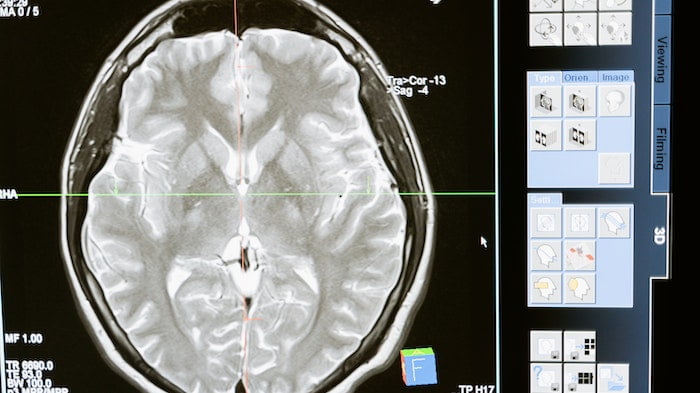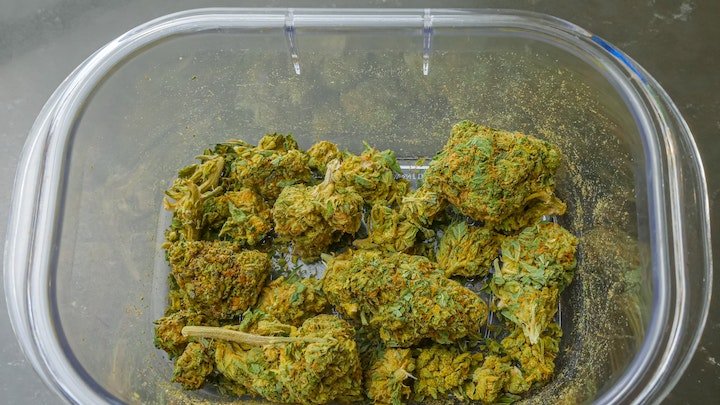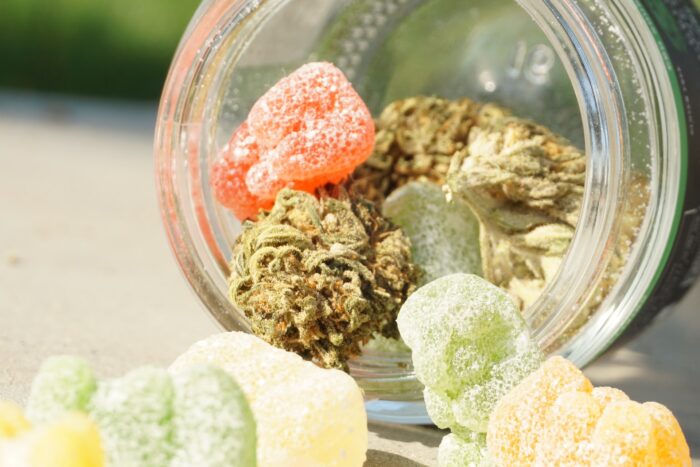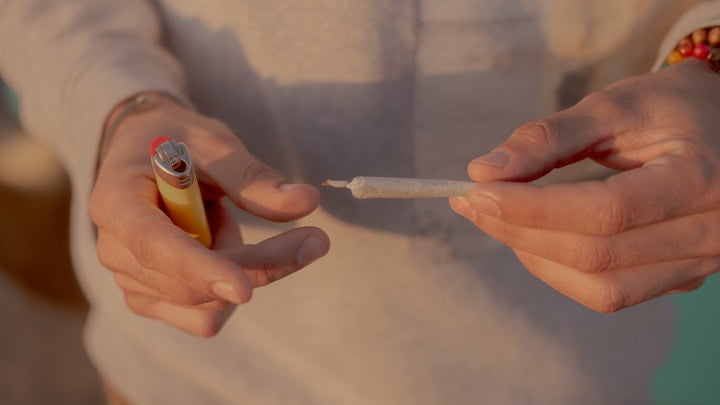Does Cannabis Kill Brain Cells?
Cannabis is one of the most commonly used drugs, not just in the UK but worldwide.
While cannabis has been considered to be a relatively safe drug in the past (in comparison with other substances such as cocaine or heroin) there is an increase in concern for the way that cannabis can affect the brain.
This page will give you an overview of the effects of cannabis, how it might be associated with decreased cognitive function (brain development) and the various risks and potential long-term effects this might have on users.
If you need help from a first-rate drug rehab, give our team a call today on 0800 088 66 86
Cannabis: Quick Facts

Below, we outline some facts relating to cannabis:
1. What is Cannabis Made of?
Cannabis is a drug that can be smoked or ingested. It is made from the dried leaves, stems and flowers of the cannabis sativa and cannabis indica plants.
2. What are the Different Names for Cannabis?
Cannabis is also widely known as marijuana. There are a range of street names used to refer to cannabis, such as pot, grass, weed, bud and Mary Jane.
These names are often regional, and the names you hear to refer to cannabis might vary depending on where you live.
3. Is Cannabis Illegal?
Cannabis is a class B drug under the controlled substances act.
This means that it is illegal to use, grow, supply, or have cannabis on your person (possession).
This means that there will likely be legal repercussions if police have reason to suspect – and subsequent evidence – that you engage in any of these activities.
Depending on your history, these legal repercussions could take the form of a warning, a fine, or a prison sentence.
4. What Kind of Drug is Cannabis?
Cannabis is a psychoactive drug.
That means that it has various effects on the mind, and the effects that are felt can vary widely between users.
Cannabis can be:
- Stimulating (Speeding up messages from the brain, making things feel faster and making you feel more alert and awake)
- Depressing (Slowing down messages from the brain, making things feel slower and making you feel tired, drowsy or less anxious or worried)
- Hallucinogenic (Making you feel, think, or see things that are outside of reality, like hearing voices or seeing things that other people can’t see)
This means that if you use cannabis with a friend, you may feel the effects differently.
Similarly, if you use cannabis more than once, there is a chance that the high may affect you differently each time.
For example, on your first use, a cannabis high may make you feel mellow and relaxed.
On your fourth use, you may feel agitated. On your sixth, the high may lead to hallucinations, which can be very distressing.
This is one of the biggest dangers of using cannabis and is one of the reasons why many health organisations say that there is ‘no safe legal of drug use’ as the ways that drugs affect us can change drastically.
To learn more about cannabis and its effects on the body and brain, give our team a call on 0800 088 66 86
How Common Is Cannabis Use?

Below, we outline the commonality of cannabis use, both in the UK and around the world:
1. In the UK
In the UK a 2021 report recorded that 1 in 11 adults (9.2%) had used drugs in the past year.
In the same report, 7.4% of adults admitted to having used cannabis specifically, with 3.2% of adults showing signs of cannabis dependence or addiction.
2. In the World
Alongside alcohol and tobacco, The World Health Organisation claims that cannabis is one of the most popular drugs in the world.
This means that is one of the most commonly used illegal drugs globally, with 2.5% of adults (around 147 million people) using cannabis.
Reports such as these suggest that the number of people who use cannabis is increasing globally each year.
Get the support you need to overcome cannabis addiction by calling us today on 0800 088 66 86
How Does Cannabis Get You High?

It is important to know what is inside cannabis and any other substances you may use.
This is because knowing what compounds are inside substances helps us to understand how the drug works, and then to investigate the harmful effects it may have.
Research in labs has shown that cannabis is quite complex.
This means that there are lots of ‘compounds’ or different parts inside cannabis that can all contribute to the feeling of a high.
While there are over 100 of these compounds (known as cannabinoids), there are two main compounds found inside cannabis.
1. THC
THC is short for tetrahydrocannabinol.
THC is thought to be an active ‘psychoactive’ ingredient in cannabis,
This means that it is the THC in cannabis that gets you high.
THC is associated with the following side effects:
- Hallucinations (perceiving things that are not there – seeing or hearing things)
- Paranoia
- Feeling tired, drowsy, or sedated
- Head aches
- Dry mouth
- Extreme high mood
- Extreme low mood
- Depression
- Anxiety
- Schizophrenia
- In some cases, seizures
- In some cases, hyperemesis syndrome (extreme, consistent vomiting)
Potentially, the kinds of symptoms and effects of THC may be associated with the impact that cannabis may have on our brain chemistry and brain structures.
2. CBD
CBD is short for cannabidiol.
CBD is an active ingredient in cannabis, but it is not a psychoactive compound. This means that it is not the CBD that gets you high.
Because of this, CBD can be extracted from the chemicals that cause a high.
This means that CBD products such as oils, drinks, etc. can be sold legally if they follow specific guidelines.
CBD products are frequently used for various medical purposes, such as chronic pain, anxiety and stress.
However, the medical effects of CBD are still being tested, and there may still be some negative effects associated with using CBD – it is important to speak with your doctor first before pursuing any line of treatment.
CBD is associated with the following side effects:
- Calming anxiety
- Feeling sleepy or drowsy
- Dry mouth
- Upset stomach
- Reduced appetite
- Low (or lower than normal) blood pressure
Don’t let cannabis control your life – give our expert team a call today on 0800 088 66 86
Can Cannabis Kill Brain Cells?

It has become a bit of a myth that cannabis can kill or damage brain cells.
However, science is undecided on if this is actually true.
Whilst there has been some research that suggests using cannabis consistently can affect brain function, there is less evidence to establish that it can ‘kill’ brain cells.
How Can Cannabis Impact the Brain?
Below, we outline both the short-term and long-term side effects of cannabis on the brain:
1. Short-Term Impacts
Like most drugs, cannabis can have an effect on our executive functions – our ability to assess and react to certain situations, respond appropriately and keep ourselves safe.
In the past, cannabis has been considered to be a relatively ‘safe’ drug compared to others.
This is part of the reason why cannabis is categorised as a Class B drug, not a Class A.
When we get high, we could say that we are experiencing a short-term change in our behaviour in response to the chemical change in our bodies and brains.
2. Long-Term Impacts
With consistent use, and in cases of substance use disorders, there is a chance that these changes in our brains can become more serious cognitive impairments.
This is why there have been some concerns about frequent cannabis use, with some studies suggesting that heavy cannabis use can be associated with adverse effects on the brain.
Some of the ways in which cannabis may affect the brain include:
- Impaired memory (trouble remembering things)
- Difficulty learning new things
- Lowered attention span
- Lowered ability to problem solve
- Lowered coordination and motor skills
To answer any further questions you may have regarding how cannabis influences you, give our expert team a call today on 0800 088 66 86
Research on Cannabis Use and the Brain

Longitudinal studies (research on specific people over a long period of time) have helped medical professionals to see how cannabis use may affect an individual throughout their lives.
One study (published in 2012) looked at the way in which cannabis might be linked to brain function by studying 1,037 people.
The researchers gave the participants activities designed to test different kinds of brain function at the ages of 13 and 38.
Whilst the study did not explicitly say that cannabis kills brain cells, it did find a link between persistent cannabis use and a decrease in cognitive ability.
They found that the IQ of individuals who used cannabis frequently was reduced, on average, by between 6 and 8 points.
Discover the full extent of cannabis addiction throughout the world by giving our team a call on 0800 088 66 86
Cannabis Use and Teen IQ

The study found that the effects of cannabis on the IQ of participants were higher the earlier they began to use cannabis.
This suggests that using cannabis in our teen years can have more serious effects on our cognitive abilities.
This is thought to be because, during our teens, the brain is still developing.
It is thought that the prefrontal cortex (the part of the brain linked with decision-making and executive function) is not developed completely until the age of 25.
This means that teens using cannabis, whilst the brain is still not fully developed, are at higher risk of more serious cognitive effects than adults.
The 2012 study also found that in the participants who started taking cannabis as an adult, there was no evidence of a decrease in IQ.
Whatever age you are, get the help you need from our experts by calling us on 0800 088 66 86
Cannabis Use and Memory

However, other pieces of research have shown that heavy use of cannabis can impact memory.
As we get older, our memory typically begins to decline. This is thought to be due to changes in the hippocampus.
The hippocampus is an area of the brain associated with memory.
Our brains are all made up of networks of neurons (brain cells).
As we age, the number of neurons in our brains naturally decreases.
Studies into the effects of cannabis use have shown that THC (one of the key compounds in cannabis) can reduce the number of neurons in the hippocampus.
This means that heavy cannabis use can impact how our memory system works, causing issues with early memory loss.
Nor sure if cannabis is effecting your memory? Find out more about treatment options by calling us today on 0800 088 66 86
Cannabis Use and Emotions

While reduced IQ and memory loss are associated with brain structures, cannabis can also affect brain chemicals.
Brain chemicals are associated with mood.
This means that heavy use of cannabis can impact our emotional well-being.
Cannabis is linked to several mental health and psychiatric conditions, including:
- Anxiety
- Depression
- Paranoia
- Psychosis
- Schizophrenia
This means that using cannabis is a higher risk for individuals who already have a mental health condition, as the drug can increase any symptoms you may already be dealing with.
For individuals who may be self-medicating with cannabis, this can create a vicious cycle where the side effects of the drug may be mirroring the psychological symptoms that are already present.
At that stage, it can be difficult to identify what is the main cause of your discomfort.
If cannabis use is affecting your emotions, give our team a call on 0800 088 66 86
Cannabis Addiction

Not everyone who uses cannabis will experience addiction.
This is because use is different from dependency.
Dependency or addiction occurs when we become reliant on something.
Whilst some people suggest that cannabis is a ‘milder’ drug, it is possible to develop cannabis use disorder, which can have serious adverse effects on your quality of life.
If you or a loved one are using cannabis on a frequent basis and feel that you are struggling to function without it, you may be experiencing addiction.
To learn more about the specifics of cannabis addiction and get help from a drug rehab near you, talk to us on 0800 088 66 86
Am I Addicted to Cannabis?

It can be difficult to identify addiction in ourselves.
This is because addiction is as psychological as it is physical, and it is natural that the complicated feelings that both lead to and are caused by drug use can sometimes feel a little cloudy.
This means it can sometimes be helpful to check in with yourself, to help you to evaluate if your use of substances is perhaps getting out of control.
Some of the questions you can ask yourself include:
- Have I ever felt that I need to reduce my use of cannabis?
- Have I ever felt annoyed or defensive when other people comment on my use of cannabis?
- Have I ever felt guilty about my use of cannabis?
- Have I ever used cannabis to help me cope with life events, stress or my feelings?
If the answer to any of these questions is a ‘yes’, then there is a chance that you are currently coping with addiction.
Not sure if you’re addicted to cannabis? Talk it over with our expert team today on 0800 088 66 86
Treating Cannabis Dependency

Addiction does not have a cure.
Instead, it has a range of different treatment options that can be specially tailored to suit you and your needs.
Recovery is not a linear process, but accessing addiction treatment can enhance your chances of gaining control back over your life.
Addiction treatment can vary greatly from talking therapy to activity-led, recreational treatment.
Some of the different kinds of addiction treatment for cannabis use can include:
- Acceptance and Commitment Therapy
- Brief Interventions
- Co-dependency Treatment
- Cognitive Behavioural Therapy (CBT)
- Contingency management
- Counselling
- Dialectical Behavioural Therapy (DBT)
- Family Therapy
- Group Therapy
- Holistic Therapy/ Alternative Therapy (Art Therapy, Music Therapy, Equine Therapy, etc).
- Individual Therapy (1-1 Therapy)
- Motivational Enhancement
- Motivational Interviewing
- Psychotherapy
- Twelve-Step Facilitation Treatment (TSF)
- Therapeutic communities or self-help groups
Experience any of these treatments and more at a professional rehab centre by calling us on 0800 088 66 86
Get Help Today

Addiction is experienced by thousands of people, from many different walks of life. Admitting to struggling with substances is not something you need to be ashamed of.
Reaching out for support shows great strength.
By finding a way to communicate what you are going through, you can begin to build a support network around you.
At times, it may feel that using substances is the only thing that is helping you to hold it all together, but this is never the case.
There are ways of finding support to help and prioritise your well-being again, without the use of drugs.
With this network in place, you are in the best position to begin to heal with guided professional treatment from addiction specialist providers.
If you are ready to access support for cannabis addiction, you can contact Rehab Recovery today at 0800 088 66 86 to speak to a member of our specialist team about accessing support at a local rehab centre.
If you are uncomfortable with speaking over the phone, you can use our free chat service at any time of day, to speak with a professional virtually.
You can begin your journey to regaining control by speaking with a team of medical professionals all trained to know how best to help you.




